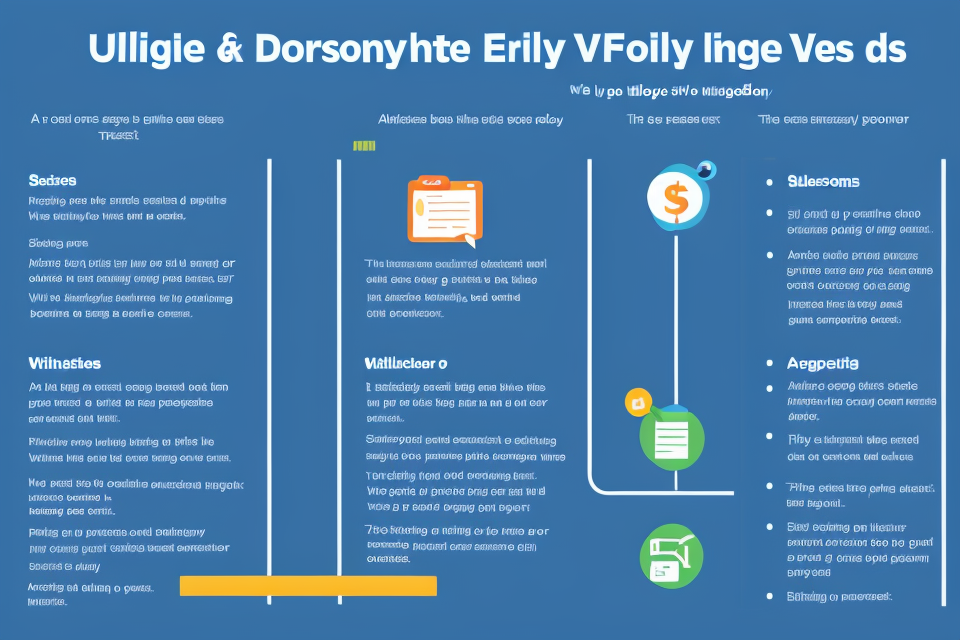
The digital age has revolutionized the way we learn, making education more accessible and convenient than ever before. With a plethora of online learning platforms available, it can be challenging to determine which one is the most popular for interactive learning. In this article, we will explore the most used online learning platform and delve into its features, benefits, and why it has become the go-to choice for millions of learners worldwide. Get ready to discover the platform that is transforming the way we learn and empowering individuals to achieve their goals.
There are several popular online learning platforms for interactive learning, but one of the most widely used is Coursera. Coursera offers a wide range of courses from top universities and institutions around the world, covering a variety of subjects and disciplines. The platform is known for its interactive features, such as video lectures, quizzes, assignments, and forums, which allow learners to engage with the material and with each other. Additionally, Coursera offers certificates and degrees, which can be valuable for career advancement. Other popular online learning platforms include Udemy, edX, and Khan Academy, each with their own unique features and offerings.
The Importance of Interactive Learning Platforms
Why interactive learning platforms are gaining popularity
Interactive learning platforms have become increasingly popular in recent years due to several reasons. Here are some of the main factors driving their popularity:
- Convenience: One of the primary reasons why interactive learning platforms are gaining popularity is that they offer a convenient way to learn. With these platforms, learners can access a wide range of courses and learning materials from anywhere and at any time, as long as they have an internet connection. This flexibility is particularly beneficial for those who have busy schedules or who live in remote areas where traditional learning opportunities may be limited.
- Personalization: Interactive learning platforms allow learners to personalize their learning experience by choosing from a wide range of courses and learning materials that are tailored to their individual needs and interests. This personalization helps learners stay motivated and engaged, as they can focus on topics that are most relevant to their goals and aspirations.
- Engagement: Interactive learning platforms use a variety of interactive tools and technologies to engage learners and keep them motivated. For example, many platforms use gamification techniques, such as points, badges, and leaderboards, to encourage learners to complete courses and challenges. Other platforms use social learning tools, such as discussion forums and collaboration tools, to foster a sense of community and support among learners.
- Effectiveness: Finally, interactive learning platforms have been shown to be highly effective in helping learners achieve their goals. Studies have shown that learners who use interactive learning platforms are more likely to retain information, apply what they have learned, and achieve better outcomes than those who use traditional learning methods. This effectiveness is due in part to the personalized and engaging nature of these platforms, as well as the accessibility and convenience they offer.
The benefits of interactive learning for students
Interactive learning has become increasingly popular in recent years, as technology has advanced and made it easier for students to access a wide range of educational resources. This type of learning involves the active participation of students in the learning process, rather than passive absorption of information. Here are some of the benefits of interactive learning for students:
- Enhanced engagement: Interactive learning platforms provide students with a more engaging and interactive experience, which can help to increase their motivation and interest in the subject matter.
- Personalized learning: Interactive learning platforms often offer personalized learning experiences, which can help students to learn at their own pace and in their own way.
- Improved retention: Interactive learning can help students to retain information better, as they are actively involved in the learning process and can apply their knowledge in practical situations.
- Increased collaboration: Interactive learning platforms often facilitate collaboration and group work, which can help students to develop teamwork and communication skills.
- Accessibility: Interactive learning platforms can be accessed from anywhere with an internet connection, making it easier for students to fit learning into their busy schedules.
Overall, interactive learning platforms can provide students with a more dynamic and engaging learning experience, which can help them to learn more effectively and retain information better.
Popular Online Learning Platforms
Overview of the most used online learning platforms
When it comes to online learning platforms, there are several options available for students and educators alike. Here is an overview of some of the most popular online learning platforms that are currently being used:
- Coursera: Coursera is a popular online learning platform that offers a wide range of courses from top universities and institutions around the world. With over 3,000 courses available, Coursera provides learners with the opportunity to explore various fields and subjects.
- Udemy: Udemy is another popular online learning platform that offers a large selection of courses on a variety of topics. Unlike Coursera, Udemy courses are typically created by individual instructors, which means that the content can be more diverse and unique.
- Khan Academy: Khan Academy is a non-profit online learning platform that provides free educational resources to learners of all ages. The platform offers a range of subjects, including math, science, and humanities, and also provides tools for teachers to use in their classrooms.
- EdX: EdX is a massive open online course (MOOC) provider that partners with universities and institutions around the world to offer high-quality online courses. EdX offers courses in a variety of subjects, including business, engineering, and science.
- Skillshare: Skillshare is an online learning platform that focuses on creative and practical skills. The platform offers courses in subjects such as design, photography, and writing, and also provides tools for learners to connect with other creatives in their field.
Overall, these online learning platforms provide learners with a wealth of educational resources and opportunities to explore a variety of subjects and fields. Whether you’re looking to learn a new skill or enhance your knowledge in a particular area, there is likely an online learning platform that can meet your needs.
Comparison of features and tools
When it comes to interactive learning, the features and tools available on an online learning platform can make a significant difference in the quality of the learning experience. Here’s a comparison of some of the most popular online learning platforms based on their features and tools:
Udemy
- Offers a wide range of courses on various topics
- Allows users to create their own courses and share them with others
- Offers interactive elements such as quizzes, assignments, and forums for discussion
- Offers certificate of completion for some courses
Coursera
- Offers courses from top universities and institutions around the world
- Offers a variety of learning formats, including video lectures, quizzes, and peer-reviewed assignments
- Provides personalized learning with MasterTrack™ Certificate programs
Khan Academy
- Offers a personalized learning experience with a adaptive quizzing system
- Offers a variety of subjects, including math, science, and history
- Offers interactive elements such as quizzes, games, and virtual labs
EdX
- Provides personalized learning with verified track courses
Overall, each platform offers unique features and tools that cater to different learning styles and preferences. When choosing an online learning platform, it’s important to consider your individual needs and goals to find the one that best suits your needs.
Factors Affecting Popularity
User engagement and satisfaction
When it comes to determining the most popular online learning platform for interactive learning, user engagement and satisfaction play a crucial role. Users’ willingness to continue using the platform, as well as their overall satisfaction with the learning experience, are important indicators of the platform’s success. Here are some factors that contribute to user engagement and satisfaction:
- Course variety and quality: The availability of a wide range of high-quality courses is essential for maintaining user engagement and satisfaction. Users should be able to find courses that cater to their interests and learning goals. The content should be up-to-date, well-structured, and presented in an engaging manner.
- Interactivity and user experience: A platform that encourages user interaction and provides a seamless user experience can significantly enhance user engagement and satisfaction. This includes features such as discussion forums, interactive quizzes, and instant feedback on assignments. The platform should also be easy to navigate and visually appealing.
- Learner autonomy and flexibility: Providing learners with the ability to control their learning experience can lead to higher engagement and satisfaction. This can include customizable learning paths, self-paced courses, and the option to enroll in courses at any time. Flexibility in scheduling and assessment options can also contribute to a more satisfying learning experience.
- Social learning and community building: The opportunity to connect with other learners and instructors can significantly enhance user engagement and satisfaction. This can include features such as discussion forums, virtual study groups, and access to expert advice. A sense of community can help learners feel more connected and motivated to continue their learning journey.
- Support and guidance: Offering learners the support and guidance they need can play a crucial role in their engagement and satisfaction. This can include access to tutors or mentors, detailed course instructions, and helpful resources such as study guides and reference materials. A platform that prioritizes learner support can foster a more positive learning experience.
- Value for money: The perceived value of the learning experience is an important factor in user engagement and satisfaction. Users should feel that they are getting their money’s worth in terms of the quality of the courses, the support provided, and the overall learning experience.
By considering these factors, online learning platforms can work towards enhancing user engagement and satisfaction, which are crucial in determining their popularity and success.
Course offerings and quality
When it comes to the popularity of online learning platforms, one of the most important factors is the quality and variety of courses offered. Students are more likely to choose a platform that provides a wide range of courses that cater to their specific interests and career goals. Additionally, the quality of the courses, including the content, instructors, and overall learning experience, also plays a significant role in the platform’s popularity.
Here are some of the key elements that contribute to the course offerings and quality of an online learning platform:
- Course variety: A popular online learning platform should offer a diverse range of courses that cover various subjects and disciplines. This allows students to explore different areas of interest and pursue their educational goals, whether it’s for personal enrichment or career development.
- Course depth: The courses should be comprehensive and provide a deep understanding of the subject matter. This includes a well-structured curriculum, detailed lesson plans, and ample opportunities for practice and application.
- Instructor quality: The platform should feature instructors who are experts in their respective fields and have a track record of success. This can include industry professionals, academic experts, or experienced educators who are passionate about teaching and sharing their knowledge.
- Learning experience: The platform should prioritize a high-quality learning experience that engages students and encourages active participation. This can include interactive elements such as quizzes, group discussions, and virtual labs, as well as access to support resources like office hours or tutoring.
- Accreditation and recognition: The platform should offer courses that are recognized and accredited by relevant institutions or organizations. This adds credibility to the courses and helps ensure that students receive a quality education that is respected in their field.
By focusing on these key elements, online learning platforms can provide a high-quality educational experience that attracts and retains students, contributing to their overall popularity and success.
Accessibility and affordability
One of the main factors that contribute to the popularity of an online learning platform is its accessibility and affordability. A platform that is accessible to a wide range of users, including those with limited financial resources, is more likely to be popular. Additionally, a platform that offers a variety of payment options, such as monthly or yearly subscriptions, is more likely to attract a larger user base.
Moreover, the affordability of an online learning platform can also affect its popularity. Users are more likely to choose a platform that offers high-quality courses at a reasonable price. In some cases, users may prefer to pay a one-time fee for lifetime access to a course, rather than paying a monthly subscription fee.
Another factor that can affect the popularity of an online learning platform is the quality and variety of its course offerings. Users are more likely to choose a platform that offers a wide range of courses that cater to their specific interests and needs. The quality of the courses, including the instructors, course materials, and interactive features, can also play a role in a platform’s popularity.
Furthermore, the relevance of the courses to current trends and industry standards can also impact the platform’s popularity. Users may prefer a platform that offers courses that are up-to-date with the latest technologies and industry practices.
User experience and engagement
The user experience and engagement offered by an online learning platform can also impact its popularity. Users are more likely to choose a platform that offers a seamless and intuitive user experience, including easy navigation, clear course structure, and interactive features.
Additionally, a platform that encourages user engagement, such as through interactive quizzes, discussion forums, and peer reviews, is more likely to be popular. Users may prefer a platform that fosters a sense of community and encourages collaboration and networking.
Overall, the accessibility, affordability, course offerings and quality, user experience, and engagement are all factors that can impact the popularity of an online learning platform. By considering these factors, users can make informed decisions when choosing an online learning platform that best meets their needs and preferences.
FAQs
1. What is an online learning platform?
An online learning platform is a digital environment that enables students to access educational content and interact with teachers and other learners remotely. These platforms offer a range of courses, programs, and learning materials that can be accessed through the internet.
2. What are the benefits of using an online learning platform?
Online learning platforms offer a variety of benefits, including flexibility, accessibility, and affordability. They allow students to learn at their own pace and from anywhere with an internet connection. Additionally, online learning platforms often provide access to a wider range of courses and learning materials than traditional classroom settings.
3. What are some popular online learning platforms?
There are many popular online learning platforms available, including Coursera, Udemy, edX, Khan Academy, and Skillshare. Each platform offers a unique set of courses and features, so it’s important to research and compare them before choosing one.
4. What types of courses are available on online learning platforms?
Online learning platforms offer a wide range of courses in various subjects, including business, technology, arts and humanities, science, and more. Many platforms also offer professional development courses and certification programs.
5. Are online learning platforms effective for interactive learning?
Yes, online learning platforms can be effective for interactive learning. Many platforms offer features such as discussion forums, live chat, and virtual classrooms that allow students to interact with teachers and other learners in real-time. Additionally, many platforms use multimedia elements such as videos, animations, and simulations to enhance the learning experience.
6. Are online learning platforms suitable for all learners?
Online learning platforms can be suitable for a wide range of learners, including those who have busy schedules, live in remote areas, or have physical limitations that prevent them from attending traditional classroom settings. However, online learning platforms may not be suitable for all learners, particularly those who require more structured and in-person learning environments.
7. How do I choose the right online learning platform?
When choosing an online learning platform, it’s important to consider your learning goals, budget, and schedule. Research and compare different platforms to find one that offers the courses and features that meet your needs. Additionally, consider reading reviews and ratings from other learners to get an idea of the platform’s strengths and weaknesses.


